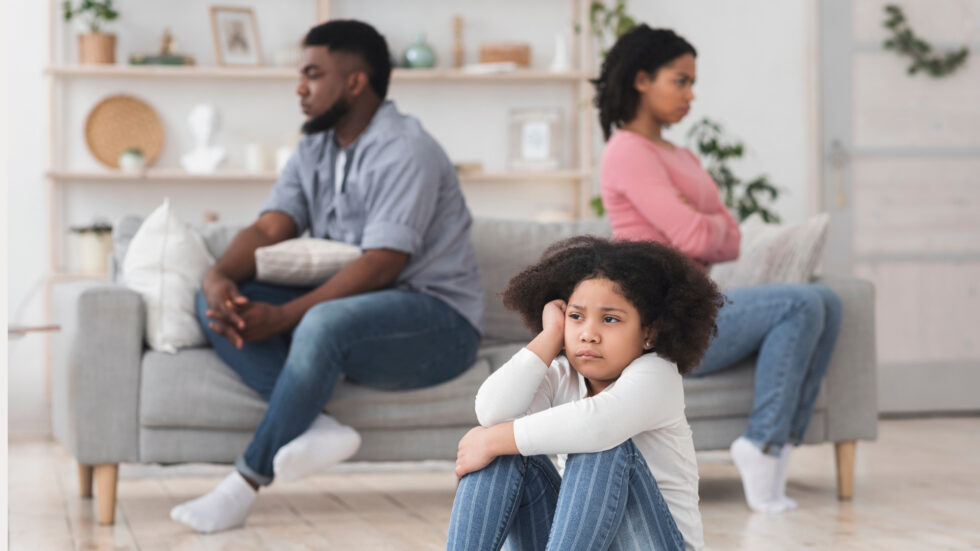Maybe you’ve heard the news that Khloe Kardashian is overlooking her partner Tristan Thompson’s latest infidelity for the sake of their daughter. Her reasoning is that the young girl needs both of her parents. And, while that is true, not addressing the challenges in the relationship between the parents will outweigh any benefit.
My standing policy is that having a child is a great motivator to make the relationship better but putting the responsibility for the marriage on that child is non-starter. And, make no mistake, the child is aware on some level that this is happening. And, because the child loves mom and dad, they take that on.
There are several problems with the concept of just “staying together” for the kids. The first is that your children will pick up on the tension between the two of you.
If you or your spouse are unhappy or stressed because of the issues in your marriage, your children will know it. Your distraction, frustration, resentment, stress, or any other hard feeling will show up in how you interact with your kids. Depending on their ages, they may misunderstand and think they have done something to cause those feelings.
Second, you are teaching them what a marriage looks like. How the two of you interact lays the foundation for what they think adult romantic relationships should be. They will absorb it and repeat it. So if you’re not dealing with your issues, your children will often repeat them.
Think about it. What patterns from your parents’ marriage are you repeating? Which ones are you passing on?
My client George learned to rage from both his father and his grandfather. He brought that into his marriage and to his son. So is it any surprise when the son gets upset, he loses control in the same way?
Luckily George has learned to deal with his emotions in a much more mature and effective way. And it is having a beneficial effect on his son’s behavior.
My friend Patty’s parents would go absolutely silent after an argument. Not for a few hours, but for days. She and her siblings would walk on eggshells, trying to stay quiet and out of the way. They were never quite sure what to do or when things would return to “normal”.
When her husband wanted to talk about something serious, Patty would go silent. She never learned how to deal with disagreements. Her husband would stay present, playing both sides of the conversation until Patty was able to join in. She learned new skills that her parents never mastered.
This is the legacy of staying together but not fixing things. Multi-generational challenges.
Your children are counting on you to get it right for them. Not suffer for them. So, if you’re going to stay together, make it better. They can be the motivation, but you will be the one who benefits.
If you want to give your children the foundation they need but have some questions about what’s possible, find out with your 5-Star Relationship Consultation.
around the web this week:
Would Bringing Back Gentlemen (and Ladies) Help Relationships?
Back in the 1960s, the phrase “let it all hang out” gained popularity. It means “to behave freely without being shy or feeling worried about what other people will think of you”. Being your authentic self is good. Having no limits to your behavior is not. But where should you draw the line? The concept of “ladies and gentlemen” may be outdated but there are some positive behaviors defined by these terms that may still be useful. Practicing physician and author Dr. Leonard Sax reveals how teaching young people these behaviors can create the foundation for better relationships and lives.
Bad Marriage Advice #16: Stay together for the children
Join our FREE Facebook Group for men only,
Good Guys, Great Husbands


